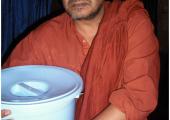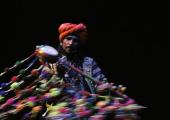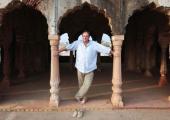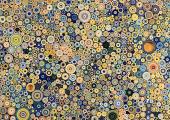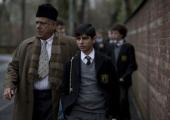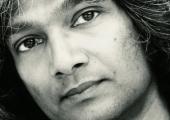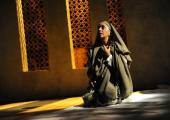Globe to Globe: The Taming of the Shrew, Shakespeare's Globe

Shakespeare's study in domestic discord played brightly and for laughs
The battle of the sexes took on a bright and breezy tone in Pakistan's contribution to the Globe's ongoing Bardathon, the Theatre Wallay-Kashf's rumbustious production of The Taming of the Shrew. It's been more customary of late to treat this most vexatious of comedies as sustainedly ironic or as a far-from-funny exercise in domestic degradation. But the director Hassaim Hussain and his agile company were having none of that. If anything their production in its tone often suggested a dry run for The Comedy of Errors, which the Globe will host later this week.

